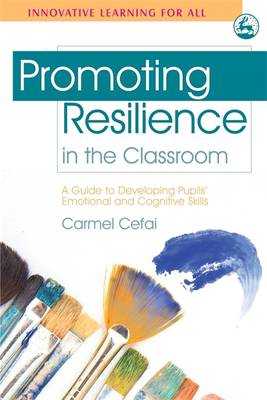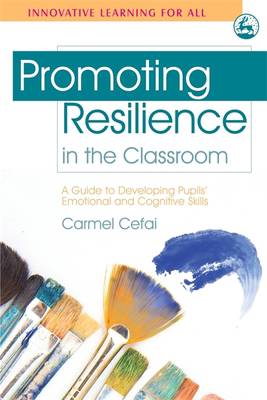
En raison d'une grêve chez bpost, votre commande pourrait être retardée. Vous avez besoin d’un livre rapidement ? Nos magasins vous accueillent à bras ouverts !
- Retrait gratuit dans votre magasin Club
- 7.000.000 titres dans notre catalogue
- Payer en toute sécurité
- Toujours un magasin près de chez vous
En raison de la grêve chez bpost, votre commande pourrait être retardée. Vous avez besoin d’un livre rapidement ? Nos magasins vous accueillent à bras ouverts !
- Retrait gratuit dans votre magasin Club
- 7.000.0000 titres dans notre catalogue
- Payer en toute sécurité
- Toujours un magasin près de chez vous
Promoting Resilience in the Classroom
A Guide to Developing Pupils' Emotional and Cognitive Skills
Carmel Cefai
39,95 €
+ 79 points
Description
Resilience is a set of qualities that enable children to adapt and transform, to overcome risk and adversity, and to develop social competence, problem-solving skills, autonomy and a sense of purpose. For children and young people it is as vital to possess these qualities in school environments as in the family and the community at large.
This handbook for teachers and educators explores ways of nurturing resilience in vulnerable students. It proposes a new, positive way of thinking about schools as institutions that can foster cognitive and socio-emotional competence in all students. Individual chapters examine effective practices in schools and classrooms, and assess a range of classroom processes, such as engagement, inclusion, collaboration and prosocial behaviour. The author makes use of case studies throughout to bring to life classroom activities and concrete strategies that will promote best practice for enhancing student resilience, and offers a framework that can be adapted to the existing nature, culture and needs of each individual school community and its members. Promoting Resilience in the Classroom is a valuable resource for educational practitioners as well as educational officers and policy makers engaged in school development and educational improvement.Spécifications
Parties prenantes
- Auteur(s) :
- Editeur:
Contenu
- Nombre de pages :
- 176
- Langue:
- Anglais
- Collection :
Caractéristiques
- EAN:
- 9781843105657
- Date de parution :
- 01-03-08
- Format:
- Livre broché
- Format numérique:
- Trade paperback (VS)
- Dimensions :
- 160 mm x 230 mm
- Poids :
- 267 g

Les avis
Nous publions uniquement les avis qui respectent les conditions requises. Consultez nos conditions pour les avis.






